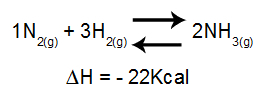The Brazilian Traffic Code (CTB) has undergone constant changes in its legislation. This includes amendments to fines and administrative procedures.
Therefore, it is necessary to be careful not to be harmed or not to miss the chance to resolve existing issues.
see more
Alert: THIS poisonous plant landed a young man in the hospital
Google develops AI tool to help journalists in…
See too: 99 launches feature that allows negotiation between drivers and passengers
Check out three situations related to fines that have changed recently and that are still taking drivers by surprise. Some of the changes may even be positive for all Brazilian drivers; understand better below:
1. Easing the overweight rule
Article 99 of the CTB establishes the prohibition of vehicles that do not comply with the pre-established weight limit. The rule appears in the National Traffic Council (Contran), but recently gained new flexibility. This means that the tolerance for excess weight has increased.
This new measure limits the prosecution of drivers who are overweight in the vehicle. In the past, an increase in the amount of the fine was foreseen according to the overweight rate measured by the inspection equipment.
2. Fine for legal entity
Business vehicles can be fined, and the infraction is levied on the responsible Legal Entity (PJ). The “No Driver Indication” (NIC) fine has undergone some recent changes.
Until then, companies had fines multiplied by the number of times the infraction was committed, with no indication of the violator.
Now, the amount is fixed, equivalent to twice the value of the registered fine. It doesn't matter how many times the same infraction has been recorded.
3. Suspension of fines
Among the amendments to the CTB, the suspensive effect of fines was one of those that most relieved drivers. It was necessary to file a suspension request during the administrative defense stages. Now the deadline is different.
According to the legislation, while the process is open, the driver cannot be penalized by the fines. This means that he will not need to pay or even be prevented from renewing the driver's license, for example.

